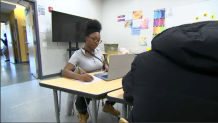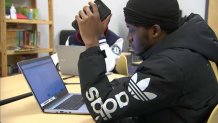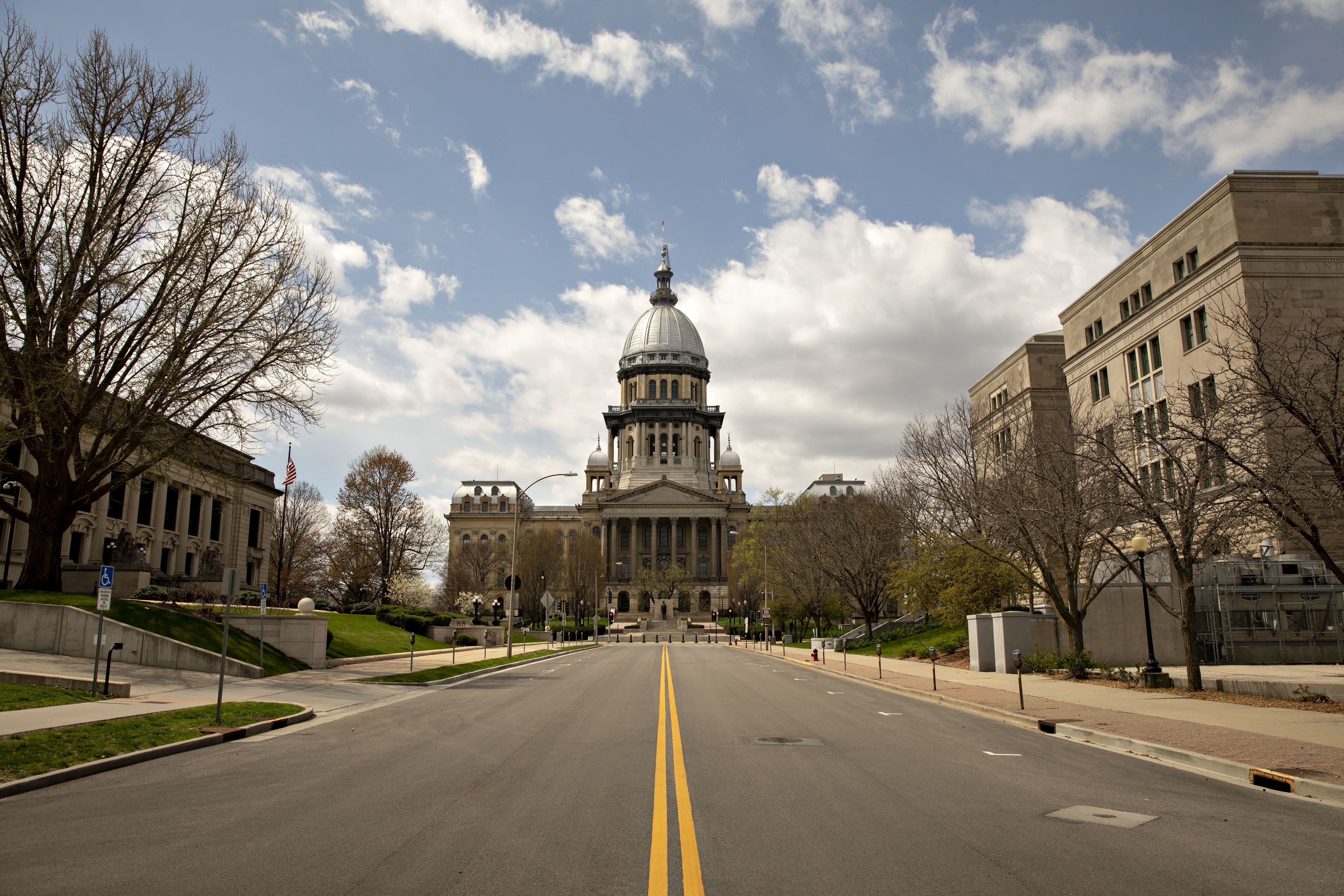For 20-year-old Tamaya McGowan, it's surreal to be back in a classroom setting as she works towards earning her high school diploma. When she was a senior in high school, she made the difficult decision to drop out.
"I got pregnant and never went back," said McGowan. "I thought, I have a baby and I have to provide for him so I'm like how am I going to work and go to school?"
But after an almost two-year hiatus from school, she received a random call that changed her life.
"Somebody reached out to my auntie saying they were looking for me," said McGowan.
It turns out, an outreach worker was trying to convince her to go back to school as part of a new program from Chicago Public Schools. The program is called Back to our Future and is being offered through three different local organizations, including Breakthrough on the city's West Side.

"It’s a brand new program that we have not seen really anywhere in the country," said Jadine Chou, the chief of safety and security at Chicago Public Schools, adding that the initiative came after finding out alarming information from a University of Chicago Lab study.
Local
"When you see statistics on the news of teenagers in Chicago becoming victims of gun violence, 90% of the time those young people, when they became a victim of violence, were not engaged in school," said Chou. "That was really a call to action."
The program lasts nine to 12 months and is meant for youth who are 14 to 20 years old. In order to qualify, they must be disengaged from Chicago Public Schools for more than 18 months or have a chronic history of absenteeism.
Feeling out of the loop? We'll catch you up on the Chicago news you need to know. Sign up for the weekly Chicago Catch-Up newsletter.
"A lot is happening those 18 months, so putting them right back into a classroom without addressing those barriers may be problematic for them," said Chou. "So what we try to do first is an assessment to know where they are, what’s going on."
So far, the program has successfully recruited 380 students, re-engaging them to help them complete their education. Among them is 20-year-old Warnell Riddle.
"I made a promise to somebody that I was going to get a high school diploma," said Riddle, referring to his grandmother. Nearly two years ago, he did not think that goal was possible. Facing challenges at home, Riddle dropped out of high school just before graduation.
"It was a whole bunch of different stuff put together that was keeping me from going to school," said Riddle. "I just put it in the backseat."
Fortunately, he heard about the Back to Our Future program through word of mouth and decided to give it a shot.
"They teach you stuff in here that you don’t learn in school," Riddle said. "They don’t teach you about banking in school, they don’t teach you resumes and what job interviews are going to be like."

Riddle adds the program give him hope not only for himself, but also for other youth in the city.
"People don’t expect black young men to get back in school get a diploma hunt for jobs that’s not really expected of us so for them to open something up like this and how to reach out that’s really good for this community."
The outreach workers involved in the program tell NBC 5 that it's hard to convince youth to get back on track. But the program does offer a major incentive that helps. Students get paid for the first 12 weeks while taking workforce development training. They work 20 hours per week, earning $15.40 per hour.
For more information about the program, click here.



